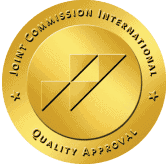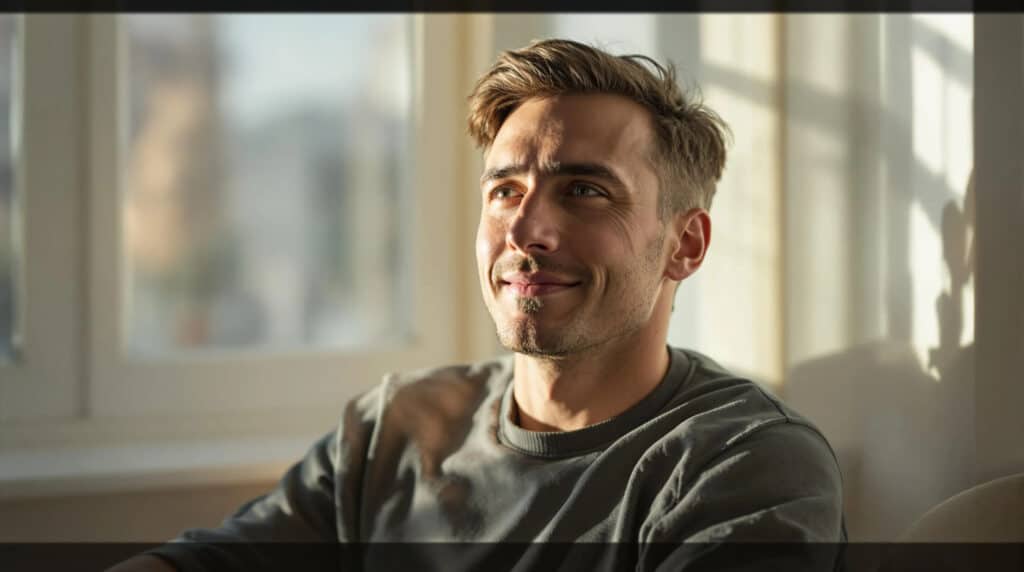You deserve compassionate, evidence-based treatment that addresses your unique needs and helps you reclaim your life. Professional treatment centers understand the complex challenges of crack addiction and provide comprehensive care designed to support your recovery journey.
Take your first step toward freedom today – help is available now.
What are the warning signs of crack addiction?
Recognizing crack addiction symptoms early can be life-saving. You may notice these physical and behavioral changes that indicate the need for immediate professional intervention:
Physical warning signs you might experience:
- Rapid, unexplained weight loss
- Skin discoloration and premature aging
- Mouth sores and dental problems
- Persistent cough and chest pain
- Reduced lung function and breathing difficulties
- Frequent nosebleeds or runny nose
- Dilated pupils and bloodshot eyes
- Tremors or shaking hands
- Excessive sweating
- Sleep disturbances and insomnia
Psychological symptoms that may affect you:
- Intense mood swings and irritability
- Paranoia and suspicious thoughts
- Hallucinations or seeing things that aren’t there
- Aggressive or violent behavior
- Delusional thinking patterns
- Severe depression and anxiety
- Loss of interest in activities you once enjoyed
- Difficulty concentrating or making decisions
- Social isolation from family and friends
- Neglecting personal hygiene and responsibilities
If you’re experiencing multiple symptoms from these lists, professional treatment can help you address these dangerous health effects before they become life-threatening.
What happens during crack withdrawal?
Crack withdrawal represents a critical period when your body adjusts to functioning without the drug. Understanding what you might experience can help you prepare for professional treatment and recognize why medical supervision is essential.
Acute withdrawal symptoms you may face (first 1-3 weeks):
- Severe depression and hopelessness
- Extreme fatigue and exhaustion
- Dramatically increased appetite
- Insomnia and sleep disturbances
- Vivid, disturbing nightmares
- Slowed thinking and mental fog
- Physical restlessness and agitation
- Intense drug cravings
- Anxiety and panic attacks
- Inability to feel pleasure (anhedonia)
Extended withdrawal effects you might experience (up to several months):
- Persistent depression requiring clinical attention
- Ongoing anxiety and emotional instability
- Continued sleep problems and nightmares
- Powerful cravings that can trigger relapse
- Lack of motivation for daily activities
- Anger outbursts and emotional volatility
- Difficulty experiencing joy or satisfaction
- Cognitive impairment affecting work and relationships
- Social withdrawal and isolation
- Suicidal thoughts or behaviors
Professional treatment centers understand that withdrawal from crack cocaine can be dangerous without proper medical supervision. You don’t have to face these symptoms alone – evidence-based treatment programs provide the medical support and therapeutic interventions needed to safely navigate this challenging period.
Why is crack addiction so dangerous?
Crack cocaine creates one of the most powerful and destructive addictions known to medical professionals. Understanding these serious health risks emphasizes why immediate treatment is crucial for your survival and recovery.
Immediate health dangers you face:
- Heart attack and cardiac arrest, even on first use
- Stroke and brain hemorrhages
- Seizures that can be fatal
- Respiratory failure and lung damage
- Hyperthermia (dangerous overheating)
- Kidney failure and liver damage
- Severe dehydration and malnutrition
- Increased risk of infectious diseases
- Accidental overdose leading to death
- Violent behavior putting you and others at risk
Long-term consequences affecting your life:
- Permanent brain damage and cognitive impairment
- Chronic lung disease and breathing problems
- Severe dental problems requiring extensive treatment
- Increased risk of mental health disorders
- Relationship destruction and family breakdown
- Job loss and financial devastation
- Legal problems including arrest and incarceration
- Homelessness and social isolation
- Increased risk of suicide and self-harm
- Shortened life expectancy by decades
Treatment centers report that crack addiction progresses faster than most other substance dependencies, with some individuals developing severe addiction within weeks of first use. The good news is that with proper treatment, you can overcome this addiction and rebuild your health and relationships.
The most effective crack addiction treatment approaches
Evidence-based treatment programs combine multiple therapeutic approaches to address the complex nature of crack addiction. Professional treatment centers use proven methodologies that target both the physical dependency and underlying psychological factors driving your addiction.
Comprehensive treatment components include:
Medical stabilization and monitoring: Treatment centers provide 24/7 medical supervision during the critical early stages of recovery. You’ll receive medications to manage withdrawal symptoms safely, nutritional support to restore your health, and continuous monitoring to prevent medical complications.
Individual therapy sessions: You’ll work one-on-one with licensed therapists who specialize in addiction treatment. These sessions help you understand the root causes of your addiction, develop healthy coping strategies, and address any co-occurring mental health conditions like depression or anxiety.
Group therapy and peer support: Connecting with others who understand your struggles provides invaluable support and accountability. Group sessions allow you to share experiences, learn from others’ recovery journeys, and build a network of sober relationships.
Behavioral modification techniques: Treatment programs teach you practical skills to identify triggers, manage cravings, and make healthier choices. You’ll learn stress management techniques, communication skills, and relapse prevention strategies that support long-term recovery.
Family therapy and education: Addiction affects entire families, and treatment centers recognize the importance of healing these relationships. Family therapy sessions help rebuild trust, improve communication, and create a supportive home environment for your recovery.
Professional treatment centers report success rates of approximately 45% for individuals who complete comprehensive crack addiction treatment programs, with higher success rates for those who engage in longer-term treatment and aftercare services.
How crack addiction treatment programs work
Treatment centers offer a structured continuum of care designed to meet you wherever you are in your recovery journey. Understanding how these programs work can help you make an informed choice about your treatment options.
Drug rehab programs provide the highest level of care for individuals with severe crack addiction. You’ll live at the treatment facility for 30-90 days, receiving round-the-clock medical supervision and intensive therapeutic support. This program is ideal if you’ve experienced multiple failed attempts at sobriety, have serious medical complications, or lack a stable home environment.
Partial hospitalization program (PHP) offers intensive daily treatment while allowing you to return home each evening. You’ll attend treatment 5-7 days per week for 6-8 hours daily, participating in individual therapy, group sessions, and medical monitoring. PHP works well if you have some stability at home but need intensive support to maintain sobriety.
Intensive outpatient program (IOP) provides structured treatment 3-4 days per week for 3-4 hours per session. You’ll continue living at home while attending therapy sessions, educational groups, and receiving ongoing medical support. IOP is appropriate if you have work or family obligations but still need significant treatment support.
Outpatient program (OP) offers the most flexible treatment option, with sessions 1-2 times per week. You’ll meet with therapists, attend support groups, and receive medication management as needed. OP works best for individuals who have completed higher levels of care or have less severe addiction patterns.
Treatment centers typically recommend starting with the most intensive level of care appropriate for your situation, then stepping down through the continuum as you build stronger recovery skills and demonstrate sustained sobriety.
What to expect during your treatment journey
Your recovery journey begins the moment you decide to seek help. Treatment centers design their programs to provide comprehensive support while respecting your individual needs and circumstances.
Initial assessment and planning: When you first contact a treatment center, you’ll complete a thorough evaluation that examines your addiction history, medical needs, mental health status, and personal circumstances. This assessment helps create a personalized treatment plan that addresses your specific challenges and goals.
Medical stabilization phase: If you’re currently using crack cocaine, you’ll begin with medically supervised withdrawal management. Healthcare professionals monitor your vital signs, provide medications to ease withdrawal symptoms, and ensure your safety during this vulnerable period. This phase typically lasts 3-7 days but can vary based on your individual needs.
Active treatment participation: You’ll engage in daily therapeutic activities designed to help you understand your addiction, develop coping skills, and address underlying issues. Treatment centers combine individual counseling, group therapy, educational sessions, and recreational activities to create a comprehensive healing experience.
Skill development and practice: Throughout treatment, you’ll learn practical tools for maintaining sobriety in real-world situations. This includes stress management techniques, communication skills, relapse prevention strategies, and healthy lifestyle habits that support long-term recovery.
Transition planning: Before completing each level of care, treatment teams work with you to plan your next steps. This might involve stepping down to a less intensive program, connecting with community resources, or developing a comprehensive aftercare plan that includes ongoing therapy and support group participation.
Treatment centers emphasize that recovery is a process, not a destination. You’ll receive ongoing support and resources to help you navigate challenges and maintain your sobriety long after completing formal treatment.
Evidence-based therapies for crack addiction recovery
Professional treatment centers use scientifically proven therapeutic approaches specifically effective for crack cocaine addiction. These evidence-based treatments address the unique challenges of stimulant addiction and provide you with tools for lasting recovery.
Cognitive Behavioral Therapy (CBT) helps you identify and change thought patterns that lead to drug use. You’ll learn to recognize triggers, challenge negative thinking, and develop healthier responses to stress and cravings. CBT has shown particular effectiveness for crack addiction because it addresses the intense psychological aspects of stimulant dependency.
Contingency Management provides tangible rewards for maintaining sobriety and meeting treatment goals. This approach recognizes that crack addiction disrupts your brain’s reward system, and structured incentives can help retrain your brain to find satisfaction in healthy behaviors rather than drug use.
Motivational Interviewing helps you explore your own reasons for change and build internal motivation for recovery. Rather than confrontational approaches, this therapy style helps you identify your personal values and goals, making recovery feel like your choice rather than something imposed upon you.
Trauma-Informed Care addresses underlying traumatic experiences that may contribute to your addiction. Many individuals with crack addiction have histories of trauma, and treatment centers recognize that healing these wounds is essential for lasting recovery.
Dialectical Behavior Therapy (DBT) teaches emotional regulation skills particularly helpful for managing the intense mood swings and emotional instability common in crack addiction recovery. You’ll learn mindfulness techniques, distress tolerance skills, and interpersonal effectiveness strategies.
Treatment centers often combine multiple therapeutic approaches to create a comprehensive treatment experience tailored to your specific needs and circumstances. The goal is to provide you with a toolkit of strategies that support your recovery in various situations and life challenges.
Contact Assure Recovery
Help is available now, and you don’t have to wait to begin your recovery journey. Assure Recovery provides comprehensive crack addiction treatment programs designed to meet your individual needs and support your path to lasting sobriety.



